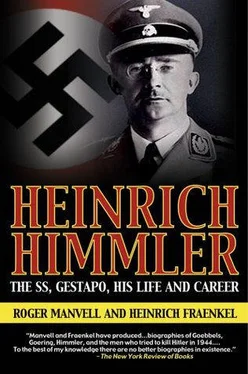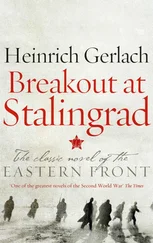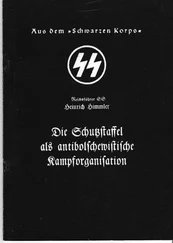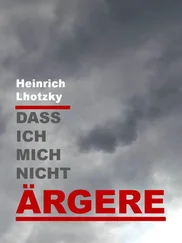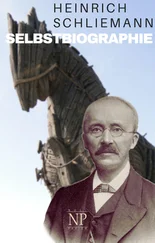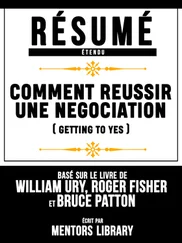His successful intrusion into Austria had given Himmler a taste for foreign affairs, and like Goring Himmler was to be used by Hitler, though in a minor capacity, to carry out his less formal diplomacy alongside the formal negotiations of the Foreign Office, which Ribbentrop had taken over early in 1938. Himmler had become one of Hitler’s close and more trusted subordinates. Though their relations remained punctilious, Himmler became to some extent a recognized companion who, unlike the generals who were doing their best to edge Hitler away from grandiose schemes for war, always supported Hitler’s policy without question and, when asked to do so, gave advice on how best to carry this policy out. It was Himmler who had led the delegation that received the Führer at Linz, and a few weeks later, in May, he was among those chosen to accompany Hitler on his state visit to Italy, where he had to stay along with the Führer in the Quirinal, the Palace of the King. ‘Here one breathes the air of the catacombs’, Himmler was heard to remark, and his observation was passed on to the King.
Nevertheless, Hitler felt Himmler was worth cultivating as a diplomat; he had been sent to Italy before in both 1936 and 1937 on goodwill visits, and had on each occasion taken Heydrich with him. Friendly relations had been established with Bocchini, Mussolini’s Minister of Police, and with Mussolini himself, who granted Heydrich a personal interview when Himmler fell ill during their first visit.
From 1938 Himmler used against both the Foreign Office and the High Command exactly the same secret strategy he had used to undermine Goring’s initial authority over the police. He maintained his friendly relations with Ribbentrop while at the same time he encroached on the duties of the Foreign Office, or duplicated them through the S.D. spy-ring abroad. Following talks with Hitler, in which the possibility that the Western Powers might use North Africa to counter-attack Europe once Germany had overrun it, Schellenberg, the most intelligent agent on Heydrich’s staff, was sent in the autumn of 1938 on an adventurous mission to West Africa to spy on the harbour facilities, while the following January Himmler made a report for his staff on conversations he had had with the Japanese Ambassador about a treaty to consolidate the Tripartite Pact, and an attempt which the Japanese were making to send agents into Russia to assassinate Stalin. In May 1939, Ciano reports that Himmler advised him that the Italians should establish a protectorate in Croatia, a policy in opposition to that of Ribbentrop, who wanted Yugoslavia to remain untouched. The following month, Hitler assigned to Himmler the difficult task of negotiating with the Italian Ambassador, Bernardo Attolico, for the resettlement of the Tyrolean Germans in the Reich. This was the first of these wholesale movements of population on racial grounds which appealed so strongly to Himmler’s sense of ethnology.
Meanwhile Himmler’s ambition in Czechoslovakia led him during 1938 to set up with Heydrich an organization of S.D. commandos who were to follow the German Army into the country ‘to secure the political life and national economy’, while inside the frontiers he hoped to gain personal control of the Free Corps organized by the Sudeten Germans, which Brauchitsch naturally expected to be the concern of the Army. Four days before the Munich Agreement, when it seemed certain Czechoslovakia would be invaded, he informed Henlein, the leader of the Sudeten Germans, that he would come under his exclusive command, and he moved six battalions of his Death’s Head guards, two of them from Dachau, up to the frontier without authority from the High Command, who cancelled his orders to Henlein and gave a general instruction that the Death’s Head men were to be subject to military control. The order ended: ‘It is requested that all further arrangements be made between the Commander-in-Chief of the Army and the Reichsführer S.S.’
The Munich Agreement of 30 September 1938 resolved this particular deadlock. Hitler, as usual, was not greatly upset to find Himmler trying to spike the Army’s guns; it satisfied his intuitive sense of security. He had in fact as recently as 17 August decreed that Himmler’s special armed forces, the future Waffen S.S., were to be regarded solely as a Party force under Himmler’s command, and outside the control of either the Army or the Police; on 26 August Himmler was among the group that accompanied Hitler on an inspection of the Western fortifications. Perhaps these attentions led Himmler to exaggerate his authority. The part he had been expected to play, had the campaign against Czechoslovakia developed into invasion, was merely to provoke border incidents and to establish an immediate police control of the occupied territory in the wake of the Army. His plans, however, had now to be abandoned. According to Ciano, an acute if malicious observer, Himmler was ‘in despair because an agreement had been reached and war seemed to be averted’. But Hitler was determined to keep the S.S. Command and the Army firmly separate. By September 1939, Himmler would have control of some 18,000 men trained for the field (the S.S. Verfügungstruppen, which were in 1940 to be re-named the Waffen S.S.) in addition to the men in his Death’s Head units and the various branches of the S.S. and the Gestapo.
Himmler had caught the war-fever from Hitler, and joined with Ribbentrop in encouraging the Führer to go to any lengths to achieve the conquest of Europe. Goring and the High Command played the double game of appeasing Hitler by hastening the preparations for war, while at the same time doing everything in their power to postpone the outbreak of hostilities. In Göring’s case, he conducted the negotiations for both war and peace alongside each other, knowing full well that Germany was ill-prepared for campaigns which might well spread to both the Eastern and Western fronts. For Himmler, whose military sense was as small as his knowledge of strategy, war was merely an assertion of racial superiority, about which he had no doubts at all of the outcome. Sir Nevile Henderson, the British Ambassador in Berlin at this period, wrote: ‘In September 1938, as well as in August 1939, Ribbentrop and Himmler were, in my opinion, his [Hitler’s] principal lieutenants in the war party,’ 28and, according to Henderson, Hitler’s actions often sprang from their fabrication of situations which were calculated to urge him to make war. Lord Halifax endorsed this opinion in a report written in January 1939 for submission to Roosevelt and the French Government. Goerdeler, one of the most prominent men in the German resistance, writing at the time of Munich, again coupled Ribbentrop and Himmler as the principal agents driving Hitler into war. It was fitting, therefore, that Himmler should accompany Hitler and Ribbentrop to Prague on 15 March after the fearful scene during the hours after midnight at the Chancellery in Berlin, when Hitler, Ribbentrop and Goring had forced the aged Czech President in the midst of a heart attack to capitulate and give up what was left of his country to the savage encroachment of Germany. Himmler made Karl Hermann Frank, a leader of the Sudeten German Free Corps and a State Secretary under the new German Protector, von Neurath, Higher S.S. and Police Chief. Frank, though nominally responsible to Neurath, was in practice responsible only to Himmler. In this way the security administration of Czechoslovakia was directed from Berlin, and the arrests began again.
The following June, Himmler was present at an important meeting of the Reich Defence Council at which high-ranking members from the civil and military authorities were present. Goring presided, and the subject was preparation for imminent war. Himmler pledged the use of the prisoners in his camps for war work.
Читать дальше
